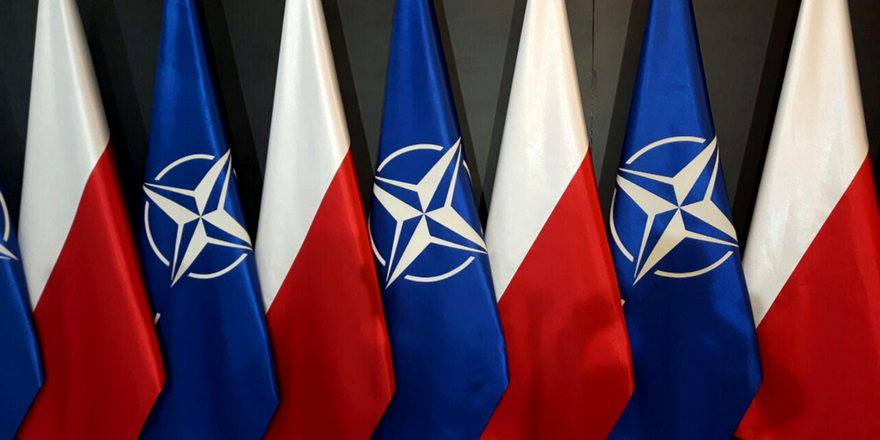In his expose Donald Tusk spoke about energy mainly in the context of wind turbines, but the list of megaprojects that must be continued is known. However, one megaproject needs to be added, and the security of the entire eastern flank of NATO, which may have less than five years to deter Russia, may depend on it – writes Wojciech Jakóbik, editor-in-chief at BiznesAlert.pl.
Tusk omits key emergency energy project
If Russia’s invasion of Ukraine ends with the freezing of the conflict and the creation of a ceasefire border similar to the demarcation line between South and North Korea, Poland will become a front-line country of the new Cold War at risk of hybrid and intrusive actions of the Russian Federation. For this reason, the words of the new Prime Minister Donald Tusk about the will to continue the policy of supporting Ukraine until its victory in the defensive war against the Russians were important. The further away the Russian threat is from Poland’s borders, the safer.
However, the security community in the West is concerned that the Russians will not back down enough for the Kremlin to give up new claims towards the Baltics and Poland. If Ukraine fails to weaken Russia enough to force it to focus on internal politics, Moscow may go back to its imperial plans after recuperation. Various official documents estimate this will take between 5 and 10 years, but experts versed in the security of NATO’s eastern flank, both civilians and military, are unofficially warning that we may have less than five years to prepare properly. This means that the current term of the Polish parliament may be the last before a hard-to-predict attack by Russia. Lack of proper preparation, according to experts, will be an invitation to aggression.
Donald Tusk’s expose put the strongest emphasis on the liberalization of the distance law that currently limits the growth of onshore wind energy. However, it is no secret that Poland needs to decide on who will deliver the FSRU to the Gdańsk Bay and how to continue the NPP project in Pomerania. Nevertheless, key projects for energy security in the worst-case scenario are also important. This was missing from the expose.
Security experts are able to describe broadly what preparations in the field of military potential are needed to deter the Russians from aggression against Poland and to better secure Polish windows to the world that deliver fossil fuels from outside Russia – oil and gas, as well as other critical infrastructure elements, about which I wrote elsewhere. This concerns arms purchases as well as preparing the logistics. I myself will focus on the aspect of oiling the war machine that is supposed to deter Vladimir Putin. This is about the logistics of fuel supplies for the needs of the forces of NATO’s eastern flank, without which the West will not be able to respond in time to possible threats, and the entry of Russian forces into the country is too great a risk, as shown by the crimes in the Ukrainian Bucha and numerous other, less known places.
How to oil NATO’s eastern flank just in case
The Cold War prompted NATO to build a network of oil pipelines supplying the Allied forces in Western Europe. It is called the Central Europe Pipeline System and currently ends in Germany. The NATO analyses I wrote about in the autumn of 2022 indicate that this system should be extended to the eastern flank because of the new realities that may take the form of a new Cold War in the absence of success in Ukraine. However, NATO cannot build this system for its member states. This is why the key job of Donald Tusk’s government is to clear the way for oil to be able to reach the eastern front. Perhaps he could receive help from President Andrzej Duda who initiated the Bucharest Nine format, which includes the eastern NATO flank states. Experts are calling for such a solution behind the scenes.
First of all, it makes sense for either Poland or Romania to lead an initiative aimed at using NATO money to make strategic investments for delivering fuels, be it oil pipelines, fuel depots or transnational connections. NATO has about a billion euros a year to invest. This money could support the actions of member states like Poland. To this end, a list of fuel investments worthy of NATO support should be established in cooperation with the PERN operator and state-owned companies. It is necessary to decide whether to run fuel pipelines from Germany directly to Poland or through the Czech Republic, whether to use the Trans-Alpine Pipeline from southern Europe, how to include the Balkan countries and Hungary, which have so far pursued a pro-Russian policy. It is also worth giving arguments to the countries of Western Europe reluctant about fossil fuels. NATO fuel pipelines can reduce logistics emissions compared to trucks and rail, and one day they can transmit green fuels produced during the energy transition to refineries on the eastern flank, such as the Gdańsk refinery or the Płock refinery. On the other hand, it is worth firmly reminding that the Armed Forces will still need fossil fuels in the next decade, and the risk of an attack in less than five years suggests that the army must have enough of them, despite the legitimate interest in novelties like RES and hydrogen in the Armed Forces.
Secondly, companies that operate critical infrastructure must have a business case for investments that cannot be empty in peacetime for economic and technical reasons. The former point is about maintaining their functionality. An example of a commercial use of CEPS is the supply of the Brussels airport. For this reason, the expert community calls for some form of a central communication port project (CPK) in Poland in this area. It is worth adding that NATO oil pipelines would relieve road and rail transport of fuel supplies, making them more accessible for other needs. They may be needed in the event of war to supply fuel directly to the front. Land deliveries will be an alternative to the sea in the event of a naval blockade in the Baltic Sea, which is to be broken by NATO forces, but after a certain time.
Third, NATO and individual member states are responsible for launching strategic communication about the end of the peace dividend. Strengthening the defense of the West against Russia’s aggressive actions will cost. This is not only about billions of dollars in investments in the defense and energy sectors, but also the need to conduct, for example, large-scale military exercises that disrupt the daily life of citizens, for example, through marching through agricultural fields or blocking infrastructure. Experts from the defense, civil and scientific sectors agree that Poland may not have five years to prepare. It must be ready to repel attacks from the Kalliningrad region, the naval blockade in the Baltic, as well as attacks on the border not only in the so-called Suwałki Gap, but in several places at the same time taking into account hybrid activities, such as the use of migrants or ethnic minorities.
If you want peace…
The good times are over, including in the energy sector. The new government of Donald Tusk must prepare it for war in order to deter the aggressor and thus reduce the risk of an attack. Poland in the new Cold War era must protect its windows to the world with raw materials from outside Russia and be able to oil NATO’s eastern flank so that it is ready for a quick response in the worst-case scenario.









